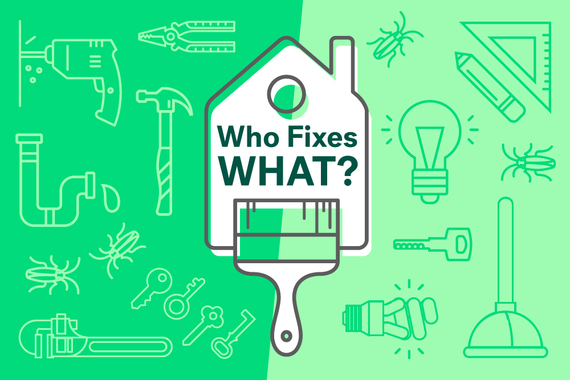It's the part of renting that most homeowners miss: When something breaks in your rental apartment, call in a service request, head to work, and by the time you've returned home, ideally your clogged kitchen disposal, broken dishwasher, or wonky ceiling fan is back to its old self again.
The general rule of thumb is to always call your landlord first before making repairs yourself. It's their job, and they are bound by state law to meet standards that keep rental units habitable. But if you're not sure whether the repair is your landlord's responsibility or your own, follow this general protocol.
1. Communicate the issue
Repairs should be left to the landlord, and tenants should call their landlord as soon as possible before trying to repair anything themselves. The landlord is required to respond within a reasonable amount of time. Sometimes these time frames are outlined in your lease. But defining a "reasonable amount of time" depends on the nature of the problem. Is it posing a safety risk or is it more of a superficial issue? Is it interfering with your ability to do essential tasks or is it just an inconvenience?
2. Wait a reasonable amount of time
If your landlord does not respond and you believe that the delay is unreasonable, you can opt to arrange for the repairs yourself. Remember to document when and how you gave notice to your landlord, as well as why you feel the response time was unreasonable.
With proper documentation, you may be able to seek reimbursement from the landlord for any out-of-pocket costs you incur while making the needed repair. Remember, this tactic should be used only under particularly urgent circumstances. In nonemergency situations, you're generally expected to give the landlord several days (or even weeks) to make the requested repairs.
Click here for the full story and more landlord hacks.
